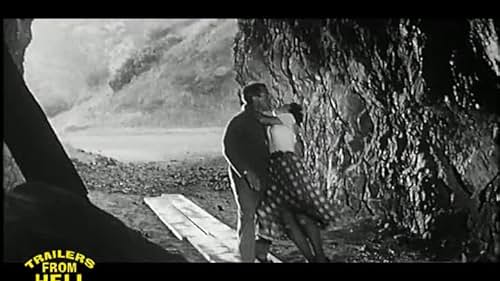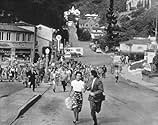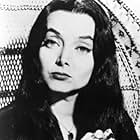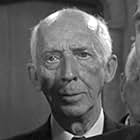VALUTAZIONE IMDb
7,7/10
56.423
LA TUA VALUTAZIONE
Il medico di una piccola città scopre che la popolazione della sua comunità viene sostituita da duplicati alieni privi di emozioni.Il medico di una piccola città scopre che la popolazione della sua comunità viene sostituita da duplicati alieni privi di emozioni.Il medico di una piccola città scopre che la popolazione della sua comunità viene sostituita da duplicati alieni privi di emozioni.
- Premi
- 2 vittorie
Trama
Lo sapevi?
- QuizProduction designer Ted Haworth came up with a fairly simple and inexpensive (about $30,000 total) idea for creating the pods. The most difficult part was when the pods burst open, revealing the likenesses of the actors. The actors had to have naked impressions of themselves made out of thin, skin-tight latex. Making the casts, which involved being submerged in the very hot casting material with only a straw in their mouths to breathe through, was grueling for the actors, especially Carolyn Jones, who was claustrophobic. Dana Wynter recalled, "I was in this thing while it hardened, and of course it got rather warm! I was breathing through straws or something quite bizarre, and the rest of me was encased, it was like a sarcophagus. The guys who were making it tapped on the back of the thing and said, 'Dana, listen, we won't be long, we're just off for lunch [laughs]!' In the end, we had to be covered except for just the nostrils and I think a little aperture for the mouth."
- Blooper(at around 20 mins) When Dr. Bennell is shown the body on the pool table he never bothers to ask where it came from or why it is there. One would think that would be the first question.
- Citazioni
Dr. Miles J. Bennell: They're here already! You're next! You're next, You're next...!
- Curiosità sui creditiTHE END comes up on the final shot of the film of Miles looking relieved that Dr Hill has believed his story, and is calling the FBI about the alien invasion of Santa Mira.
- Versioni alternativeOriginally released at 80 minutes; reissued in 1979 at 76 minutes, deleting the studio-imposed prologue and epilogue starring Whit Bissel and Richard Deacon.
- ConnessioniEdited into Il mostro dei cieli (1957)
Recensione in evidenza
Dr. Miles J. Bennell (Kevin McCarthy) is called back to his small California home early from a conference because a number of his patients have been frantically asking to see him. But oddly, when he returns home, most forget about their unspecified needs. At the same time, it seems that a mass hysteria is building where residents believe that friends and loved ones are "not themselves", literally. Just what is going on? As of this writing, it has been more than twenty years since I have seen the 1978 remake of this film, so I can't compare the two at the moment. However, it would have to be flawless to top this, the original Invasion of the Body Snatchers.
The sole factor that caused me to give the film less than a ten was the pacing during portions of the first half hour or so. While it's not bad, exactly, director Don Siegel does not build atmosphere and tension as effectively as he might have while the viewer is being filled in on the necessary exposition. Admittedly, this section is directed in a standard way for its era, but "standard" here is enough to subtract a point.
However, once we reach Miles' friend Jack Belicec (King Donovan) discovering a body on his billiard table, the suspense and tension gradually increase, and the remainder of the film is a very solid ten.
The literal "weapon" of the film's horror could have easily come across as cheesy, but it doesn't. Don Post and Milt Rice's special make-up effects and props are threateningly eerie. The transformation sequences involving the props are beautifully shot and edited--showing just enough to make them effective, but not so much that the mystery is gone.
It was ingenious to create a story where a whole town gradually turns into a villain, and even natural, unavoidable biological functions threaten our heroes' destruction. In conjunction, it all creates an intense sense of claustrophobia and paranoia for the audience.
McCarthy and Dana Wynter, as Miles' girlfriend Becky Driscoll, expertly convey a gradual transformation from common citizens to panic-stricken, desperate victims on the run. The film is also notable for slightly ahead-of-its time portrayals of relationships and divorce.
Much has been said about the parallels between Invasion of the Body Snatchers and the "communist paranoia" in the United States in the late 1940s and early 1950s, especially as it was directed against Hollywood by the House of Un-American Activities Committee. (And how ironic that the star of Invasion of the Body Snatchers is named McCarthy?) However, there is another very interesting subtext present that isn't so often mentioned. The film can also be looked at as a philosophical exploration of personal identity. Just what does it take for people to be themselves? Is it how they look, act, the things they say? Is it not the case that people are constantly transformed into something they weren't just hours ago, or even moments ago? Among the many ways that these kinds of ideas are worked into the script is that sleep is a metaphor for unconscious physical change over time. It would be easy to analyze each scene in the film in this manner, going into detail about the various implications each plot development has on the matter of personal identity.
Despite the slight pacing/atmosphere flaw in the beginning, this is a gem of a film, not just for sci-fi and horror fans, and not just for its era. It's worth seeing by anyone with a serious interest in film, and can be enjoyed either on its suspenseful surface level, or more in-depth by those who want to look at the film as more metaphorical material for societal and philosophical concerns.
The sole factor that caused me to give the film less than a ten was the pacing during portions of the first half hour or so. While it's not bad, exactly, director Don Siegel does not build atmosphere and tension as effectively as he might have while the viewer is being filled in on the necessary exposition. Admittedly, this section is directed in a standard way for its era, but "standard" here is enough to subtract a point.
However, once we reach Miles' friend Jack Belicec (King Donovan) discovering a body on his billiard table, the suspense and tension gradually increase, and the remainder of the film is a very solid ten.
The literal "weapon" of the film's horror could have easily come across as cheesy, but it doesn't. Don Post and Milt Rice's special make-up effects and props are threateningly eerie. The transformation sequences involving the props are beautifully shot and edited--showing just enough to make them effective, but not so much that the mystery is gone.
It was ingenious to create a story where a whole town gradually turns into a villain, and even natural, unavoidable biological functions threaten our heroes' destruction. In conjunction, it all creates an intense sense of claustrophobia and paranoia for the audience.
McCarthy and Dana Wynter, as Miles' girlfriend Becky Driscoll, expertly convey a gradual transformation from common citizens to panic-stricken, desperate victims on the run. The film is also notable for slightly ahead-of-its time portrayals of relationships and divorce.
Much has been said about the parallels between Invasion of the Body Snatchers and the "communist paranoia" in the United States in the late 1940s and early 1950s, especially as it was directed against Hollywood by the House of Un-American Activities Committee. (And how ironic that the star of Invasion of the Body Snatchers is named McCarthy?) However, there is another very interesting subtext present that isn't so often mentioned. The film can also be looked at as a philosophical exploration of personal identity. Just what does it take for people to be themselves? Is it how they look, act, the things they say? Is it not the case that people are constantly transformed into something they weren't just hours ago, or even moments ago? Among the many ways that these kinds of ideas are worked into the script is that sleep is a metaphor for unconscious physical change over time. It would be easy to analyze each scene in the film in this manner, going into detail about the various implications each plot development has on the matter of personal identity.
Despite the slight pacing/atmosphere flaw in the beginning, this is a gem of a film, not just for sci-fi and horror fans, and not just for its era. It's worth seeing by anyone with a serious interest in film, and can be enjoyed either on its suspenseful surface level, or more in-depth by those who want to look at the film as more metaphorical material for societal and philosophical concerns.
- BrandtSponseller
- 31 gen 2005
- Permalink
I più visti
Accedi per valutare e creare un elenco di titoli salvati per ottenere consigli personalizzati
Dettagli
- Data di uscita
- Paese di origine
- Lingua
- Celebre anche come
- L'invasione degli ultracorpi
- Luoghi delle riprese
- Aziende produttrici
- Vedi altri crediti dell’azienda su IMDbPro
Botteghino
- Budget
- 417.000 USD (previsto)
- Lordo in tutto il mondo
- 3.717 USD
- Tempo di esecuzione1 ora 20 minuti
- Colore
Contribuisci a questa pagina
Suggerisci una modifica o aggiungi i contenuti mancanti

Divario superiore
By what name was Invasione degli ultracorpi (1956) officially released in India in Hindi?
Rispondi





















